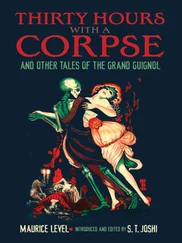Генри Джеймс - Lady Barbarina, The Siege of London, An International Episode, and Other Tales
Здесь есть возможность читать онлайн «Генри Джеймс - Lady Barbarina, The Siege of London, An International Episode, and Other Tales» — ознакомительный отрывок электронной книги совершенно бесплатно, а после прочтения отрывка купить полную версию. В некоторых случаях можно слушать аудио, скачать через торрент в формате fb2 и присутствует краткое содержание. Жанр: foreign_prose, literature_19, foreign_antique, на английском языке. Описание произведения, (предисловие) а так же отзывы посетителей доступны на портале библиотеки ЛибКат.
- Название:Lady Barbarina, The Siege of London, An International Episode, and Other Tales
- Автор:
- Жанр:
- Год:неизвестен
- ISBN:нет данных
- Рейтинг книги:4 / 5. Голосов: 1
-
Избранное:Добавить в избранное
- Отзывы:
-
Ваша оценка:
- 80
- 1
- 2
- 3
- 4
- 5
Lady Barbarina, The Siege of London, An International Episode, and Other Tales: краткое содержание, описание и аннотация
Предлагаем к чтению аннотацию, описание, краткое содержание или предисловие (зависит от того, что написал сам автор книги «Lady Barbarina, The Siege of London, An International Episode, and Other Tales»). Если вы не нашли необходимую информацию о книге — напишите в комментариях, мы постараемся отыскать её.
Lady Barbarina, The Siege of London, An International Episode, and Other Tales — читать онлайн ознакомительный отрывок
Ниже представлен текст книги, разбитый по страницам. Система сохранения места последней прочитанной страницы, позволяет с удобством читать онлайн бесплатно книгу «Lady Barbarina, The Siege of London, An International Episode, and Other Tales», без необходимости каждый раз заново искать на чём Вы остановились. Поставьте закладку, и сможете в любой момент перейти на страницу, на которой закончили чтение.
Интервал:
Закладка:
The world, to the elder lady’s view, contained two great departments, that of people and that of things; and she believed you must take an interest either in one or the other. The true incomprehensible in Lady Barb was that she cared for neither side of the show. Her house apparently inspired her with no curiosity and no enthusiasm, though it had been thought magnificent enough to be described in successive columns of the native newspapers; and she never spoke of her furniture or her domestics, though she had a prodigious show of such possessions. She was the same with regard to her acquaintance, which was immense, inasmuch as every one in the place had called on her. Mrs. Lemon was the least critical woman in the world, but it had occasionally ruffled her just a little that her daughter-in-law should receive every one in New York quite in the same automatic manner. There were differences, Mrs. Lemon knew, and some of them of the highest importance; but poor Lady Barb appeared never to suspect them. She accepted every one and everything and asked no questions. She had no curiosity about her fellow-citizens, and as she never assumed it for a moment she gave Mrs. Lemon no opportunity to enlighten her. Lady Barb was a person with whom you could do nothing unless she left you an opening; and nothing would have been more difficult than to “post” her, as her mother-in-law would have said, against her will. Of course she picked up a little knowledge, but she confounded and transposed American attributes in the most extraordinary way. She had a way of calling every one Doctor; and Mrs. Lemon could scarcely convince her that this distinction was too precious to be so freely bestowed. She had once said to that supporter that in New York there was nothing to know people by, their names were so very monotonous; and Mrs. Lemon had entered into this enough to see that there was something that stood out a good deal in Barbarina’s own prefix. It is probable that during her short period of domestication complete justice was not done Lady Barb; she never—as an instance—got credit for repressing her annoyance at the poverty of the nominal signs and styles, a deep desolation. That little speech to her husband’s mother was the most reckless sign she gave of it; and there were few things that contributed more to the good conscience she habitually enjoyed than her self-control on this particular point.
Doctor Lemon was engaged in professional researches just now, which took up a great deal of his time; and for the rest he passed his hours unreservedly with his wife. For the last three months, therefore, he had seen his other nearest relative scarcely more than once a week. In spite of researches, in spite of medical societies, where Jackson, to her knowledge, read papers, Lady Barb had more of her husband’s company than she had counted on at the time she married. She had never known a married pair to be so much together as she and Jackson; he appeared to expect her to sit with him in the library in the morning. He had none of the occupations of gentlemen and noblemen in England, for the element of politics appeared to be as absent as the element of the chase. There were politics in Washington, she had been told, and even at Albany, and Jackson had proposed to introduce her to these cities; but the proposal, made to her once at dinner, before several people, had excited such cries of horror that it fell dead on the spot. “We don’t want you to see anything of that kind,” one of the ladies had said, and Jackson had appeared to be discouraged—that is if in regard to Jackson she could really tell.
“Pray what is it you want me to see?” Lady Barb had asked on this occasion.
“Well, New York and Boston (Boston if you want to very much, but not otherwise), and then Niagara. But more than anything Newport.”
She was tired of their eternal Newport; she had heard of it a thousand times and felt already as if she had lived there half her life; she was sure, moreover, that she should hate the awful little place. This is perhaps as near as she came to having a lively conviction on any American subject. She asked herself whether she was then to spend her life in the Fifth Avenue with alternations of a city of villas—she detested villas—and wondered if that was all the great American country had to offer her. There were times when she believed she should like the backwoods and that the Far West might be a resource; for she had analysed her feelings just deep enough to discover that when she had—hesitating a good deal—turned over the question of marrying Jackson Lemon it was not in the least of American barbarism she was afraid; her dread had been all of American civilisation. She judged the little lady I have just quoted a goose, but that didn’t make New York any more interesting. It would be reckless to say that she suffered from an overdose of Jackson’s company, since she quite felt him her most important social resource. She could talk to him about England, about her own England, and he understood more or less what she wished to say—when she wished to say anything, which was not frequent. There were plenty of other people who talked about England; but with them the range of allusion was always the hotels, of which she knew nothing, and the shops and the opera and the photographs: they had the hugest appetite for photographs. There were other people who were always wanting her to tell them about Pasterns and the manner of life there and the parties; but if there was one thing Lady Barb disliked more than another it was describing Pasterns. She had always lived with people who knew of themselves what such a place would be, without demanding these pictorial efforts, proper only, as she vaguely felt, to persons belonging to the classes whose trade was the arts of expression. Lady Barb of course had never gone into it; but she knew that in her own class the business was not to express but to enjoy, not to represent but to be represented—though indeed this latter liability might involve offence; for it may be noted that even for an aristocrat Jackson Lemon’s wife was aristocratic.
Lady Agatha and her visitor came back from the library in course of time, and Jackson Lemon felt it his duty to be rather cold to Herman Longstraw. It wasn’t clear to him what sort of a husband his sister-in-law would do well to look for in America—if there were to be any question of husbands; but as to that he wasn’t bound to be definite provided he should rule out Mr. Longstraw. This gentleman, however, was not given to noticing shades of manner; he had little observation, but very great confidence.
“I think you had better come home with me,” Jackson said to Lady Agatha; “I guess you’ve stayed here long enough.”
“Don’t let him say that, Mrs. Lemon!” the girl cried. “I like being with you so awfully.”
“I try to make it pleasant,” said Mrs. Lemon. “I should really miss you now; but perhaps it’s your mother’s wish.” If it was a question of defending her guest from ineligible suitors Mrs. Lemon felt of course that her son was more competent than she; though she had a lurking kindness for Herman Longstraw and a vague idea that he was a gallant genial specimen of unsophisticated young America.
“Oh mamma wouldn’t see any difference!” Lady Agatha returned with pleading blue eyes on her brother-in-law. “Mamma wants me to see every one; you know she does. That’s what she sent me to America for; she knows—for we’ve certainly told her enough—that it isn’t like England. She wouldn’t like it if I didn’t sometimes stay with people; she always wanted us to stay at other houses. And she knows all about you, Mrs. Lemon, and she likes you immensely. She sent you a message the other day and I’m afraid I forgot to give it you—to thank you for being so kind to me and taking such a lot of trouble. Really she did, but I forgot it. If she wants me to see as much as possible of America it’s much better I should be here than always with Barb—it’s much less like one’s own country. I mean it’s much nicer—for a girl,” said Lady Agatha affectionately to Mrs. Lemon, who began also to look at Jackson under the influence of this uttered sweetness which was like some quaint little old air, she thought, played upon a faded spinet with two girlish fingers.
Читать дальшеИнтервал:
Закладка:
Похожие книги на «Lady Barbarina, The Siege of London, An International Episode, and Other Tales»
Представляем Вашему вниманию похожие книги на «Lady Barbarina, The Siege of London, An International Episode, and Other Tales» списком для выбора. Мы отобрали схожую по названию и смыслу литературу в надежде предоставить читателям больше вариантов отыскать новые, интересные, ещё непрочитанные произведения.
Обсуждение, отзывы о книге «Lady Barbarina, The Siege of London, An International Episode, and Other Tales» и просто собственные мнения читателей. Оставьте ваши комментарии, напишите, что Вы думаете о произведении, его смысле или главных героях. Укажите что конкретно понравилось, а что нет, и почему Вы так считаете.












